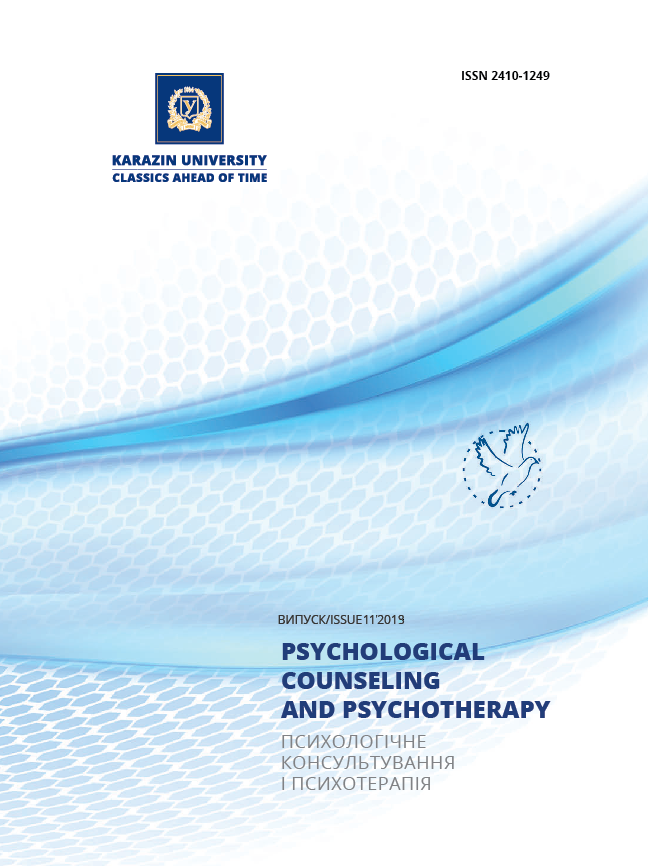Beyond Mental Health Disorders: Risk Assessment by Using the 4th Generation of Forensic Tools
Abstract
The causal relationship between mental health disorders and (violent) recidivism is weak. Beyond mental health disorders, criminogenic factors contribute to the prediction of recidivism. In order to be effective, interventions need to be offense-oriented, i.e. focused on factors that are directly associated to the offense mechanism. To treat mental health disorders while ignoring criminogenic needs is highly ineffective. A risk/needs orientation of the criminal justice system must be emphasized. Therefore, psychiatric treatment will not be sufficient to prevent future criminal behavior. The main approach should be based on explaining the mechanism of the offense to understand the underlying offense dynamic and develop on that basis a well-fitting intervention strategy. FOTRES (Forensic Operationalized Therapy/Risk Evaluation System) is a structured professional judgment (SPJ) tool of the 4th. generation designed to assess recidivism risk and to monitor treatment progress and intervention quality. FOTRES now is already implemented within the Risk-Oriented Enforcement of Sentence (ROES) project in Switzerland. The cost-benefit analysis with the ROES is positive. The tool is widley used also in Germany and Austria.
Downloads
References
Altman, D. G. (1991). Practical statistics for medical research. London, England: Chapman & Hall/CRC.
American Psychiatric Association. (2011). Diagnostic and statistical manual of mental disorders –DSM 5 (5th ed.). Washington, DC: American Psychiatric Association.
Andrews, D. A., & Bonta, J. (2001). LSI-R. The Level of Service Inventory – Revised. User’s manual. Toronto: Multi-Health Systems.
Bundesversammlung der Schweizerischen Eidgenossenschaft (1937). Schweizerisches Strafgesetzbuch [Swiss Criminal Code], 311.0 C.F.R.
Bonta, J., Blais, J., Blais, H,. Wilson, A (2014). A Theoretically Informed Meta-Analysis of the Risk for General and Violent Recidivism for Mentally Disordered Offenders. Aggression and Violent Behavior 19: 278-287. DOI: 10.1016/j.avb.2014.04.014
Chang Z , Larsson H, Lichtenstein P, Fazel S (2015). Psychiatric disorders and violent reoffending: a national cohort study of convicted prisoners in Sweden. Lancet Psychiatry. 2(10):891-900. doi: 10.1016/S2215-0366(15)00234-5.
Cicchetti, D. V. (1994). Guidelines, criteria, and rules of thumb for evaluating normed and standardized assessment instruments in psychology. Psychological Assessment, 6(4), 284–290.
Graham J. Towl and David A. Crighton (Eds.) Forensic Psychology UK: British Psychological Society and Blackwell Publishing Ltd., 2010, 458 pp.; 2015. ISBN: 978‐1‐40512‐8618‐6
Graham M. Davies (Editor), Anthony R. Beech (Editor). Forensic Psychology: Crime, Justice, Law, Interventions, 3rd Edition ISBN: 978-1-119-10667-8 October 2017 Wiley-Blackwell
Elbogen EB, Cueva M, Wagner HR, Sreenivasan S, Brancu M, Beckham JC, Van Male L. (2014). Screening for violence risk in military veterans: predictive validity of a brief clinical tool. Am J Psychiatry. 171(7):749-57. doi: 10.1176/appi.ajp.2014.13101316.
Endrass, J., & Rossegger, A. (2012). Forensisches Operationalisiertes Therapie-Evaluations-System 2.0 (FOTRES 2.0). Forum Strafvollzug – Zeitschrift für Strafvollzug und Straffälligenhilfe, 61(2), 90–94.
Fazel, S., Singh, J. P., Doll, H., & Grann, M. (2012). Use of risk assessment instruments to predict violence and antisocial behaviour in 73 samples involving 24 827 people: Systematic review and meta-analysis. British Medical Journal, 345, e4692.
Fink, D., & Bruni, H.-U. (2013). Switzerland. In A. van Kalmthout & I. Durnescu (Eds.), Probation in Europe. (pp. 1047–1076). Utrecht, The Netherlands: Wolf Legal Publishers.
Hare, R. D. (1991). The Hare Psychopathy Checklist – Revised. Toronto, ON: Multi-Health Systems.
Gerth, J. (2018). Assessing the risk of recidivism – beyond mental health disorders. Presentation Turku; 2018
Gonçalves LC, Rossegger A, Endrass J (2017). Forensic Operationalized Therapy/Risk Evaluation System (FOTRES) Book Editor(s): Jay P. Singh Daryl G. Kroner J. Stephen Wormith Sarah L. Desmarais Zachary Hamilton. https://doi.org/10.1002/9781119184256.ch12
Janus, E., & Meehl, P. E. (1997) Assessing the legal standard for predictions of dangerousness in sex offender commitment proceedings. Psychology, Public Policy, and Law, 3, 33 64.
Rossegger A, Laubacher A, Moskvitin K, Villmar T, Palermo GB, Endrass J. (2010). Risk assessment instruments in repeat offending: the usefulness of FOTRES. Int J Offender Ther Comp Criminol. 55(5):716-31. doi: 10.1177/0306624X09360662.
Singh, J. P., Desmarais, S. L., Hurducas, C., Arbach-Lucioni, K., Condemarin, C., de Ruiter, C., ... Otto, R. K. (2014). Use and perceived utility of structured violence risk assessment tools in 44 countries: Findings from the IRiS Project. International Journal of Forensic Mental Health, 13, 193 206.
Skeem JL, Winter E, Kennealy PJ, Louden JE, Tatar JR 2nd (2014). Offenders with mental illness have criminogenic needs, too: toward recidivism reduction. Law Hum Behav.;38(3):212-24. doi: 10.1037/lhb0000054.
Ten Have M, de Graaf R, van Weeghel J, van Dorsselaer S. (2014). The association between common mental disorders and violence: to what extent is it influenced by prior victimization, negative life events and low levels of social support? Psychol Med.; 44(7):1485-98. doi: 10.1017/S0033291713002262.
Urbaniok, F. (2004). FOTRES: Forensisches Operationalisiertes Therapie-Risiko-Evaluations-System
(1st ed.). Bern, Switzerland: Zytglogge.
Urbaniok, F. (2007). FOTRES: Forensisches Operationalisiertes Therapie-Risiko-Evaluations-System (2nd ed.). Bern, Switzerland: Zytglogge.
Urbaniok, F. (2016a). FOTRES. http://www.fotres.ch/
Urbaniok, F. (2016b). FOTRES: Forensisches Operationalisiertes Therapie-Risiko-Evaluations-System (3rd ed.). Bern, Switzerland: Zytglogge.
Urbaniok, F., Rossegger, A., & Endrass, J. (2006). Can high-risk offenders be reliably identified? A follow-up study on dangerous offenders in Switzerland released from prison for legal reasons. Swiss Medical Weekly, 136(47–48), 761 768.
Walters GD1, Crawford G (2014). Major mental illness and violence history as predictors of institutional misconduct and recidivism: main and interaction effects. Law Hum Behav. 38(3):238-47. doi: 10.1037/lhb0000058.
World Health Organization (1993). The ICD-10 classification of mental and behavioural disorders: Diagnostic criteria for research. Geneva, Switzerland: World Health Organization.








